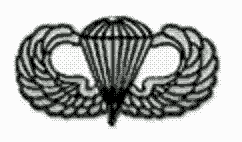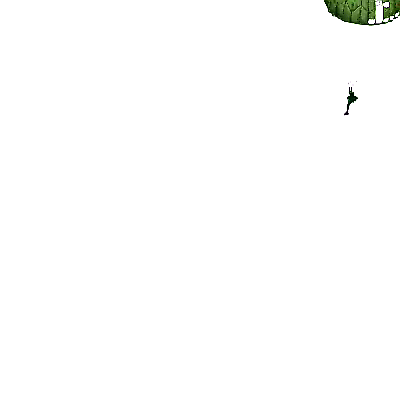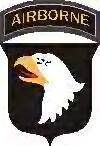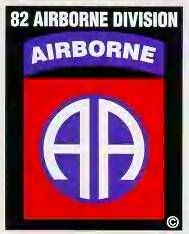
God Bless, Ike.
A true hero.
Posted on 06/05/2010 7:12:46 PM PDT by Retain Mike
Eisenhower arrived in London with less than five months until D-day. That is one month less than I had as Finance Director of a private college to lead the management team in preparing the annual operating and capital budgets. His experience occurred in another world I can never adequately imagine.
A popular historical portrayal describes General Dwight Eisenhower managing a political/military alliance, but reminds us he never lead troops in combat. However, his leadership sustained many unprecedented initiatives for successful Normandy landings. The air assault examples the frightful uncertainties of many critical hazards run on this “Day of Days”.
The night before D-Day, 20,400 American and British paratroopers dropped behind the Normandy beaches from 1,250 C-47 aircraft plus gliders. This massive assault was attempted just 17 years after Charles Lindberg flew the Atlantic solo for the first time.
To the last moment Ike's air commander, British Air Chief Marshall Leigh-Mallory, saw tragic forebodings reinforced by memories of American problems in North Africa and Sicily, and the German catastrophe on Crete. He anticipated hundreds of planes and gliders destroyed with surviving paratroopers fighting isolated until killed or captured.
The planes would arrive in three streams each 300 miles long, allowing the Germans up to two hours to reposition night fighters and anti-aircraft artillery for maximum slaughter of the unarmed transports. Most pilots were flying their first combat mission. Leigh-Mallory had specific intelligence the German 91st Air Landing Division, specialists in fighting paratroopers, and the 6th Parachute Regiment had inexplicably moved into the area around St. Mere-Eglise, where the American divisions were to land. Could these movements mean the deception plan directing attention to Pas de Calais was breaking down?
Ike remained strategically committed to the airborne assault, but compassionately devoted to the men. The evening before D-Day, Eisenhower left SHAEF headquarters at 6 PM, traveling to Newbury where the 101st Airborne was boarding for its initial combat mission. Ike arrived at 8 PM and did not leave until the last C-47 was airborne over three hours later.
In My Three Years with Eisenhower Captain Harry C. Butcher says, "We saw hundreds of paratroopers with blackened and grotesque faces, packing up for the big hop and jump. Ike wandered through them, stepping over, packs, guns, and a variety of equipment such as only paratroop people can devise, chinning with this and that one. All were put at ease. He was promised a job after the war by a Texan who said he roped, not dallied, his cows, and at least there was enough to eat in the work. Ike has developed or disclosed an informality and friendliness with troopers that almost amazed me".
In Crusade in Europe General Dwight Eisenhower says, "I found the men in fine fettle, many of them joshingly admonishing me that I had no cause for worry, since the 101st was on the job, and everything would be taken care of in fine shape. I stayed with them until the last of them were in the air, somewhere about midnight. After a two hour trip back to my own camp, I had only a short time to wait until the first news should come in”.
One of the first D-Day reports was from Leigh-Mallory with news only 29 of 1,250 C-47's were missing and only four gliders were unaccounted for. That morning Leigh-Mallory sent Ike a message frankly saying it is sometimes difficult to admit that one is wrong, but he had never had a greater pleasure than in doing so on this occasion. He congratulated Ike on the wisdom and courage of his command decision.
The above represents only one of many crushing anxieties Eisenhower persevered through. President Roosevelt understood the enormous risks, and asked the nation to pray for the coming invasion. Resting today in the luxury of historical certainty prevents us from perceiving the dark specters hovering about nearly all invasion planning aspects.

God Bless, Ike.
A true hero.
I have an uncle - dear old Uncle Harvey - who was one of those in the 101st. Today, he is 88 years old. He still simply says, “We were just doing our jobs”.
It is signed July 5??
He wrote it in advance, in case the landings failed.
The planning, of course, began years earlier.
Also the landings were delayed one day this time, I believe. Earlier I think they were delayed about a month.
I think one of Ike’s quotes was, “Up to this point, I have been the most powerful man in the world, tomorrow [June 6], I am going to be the most powerless.”
That is a great perspective.
Excellent piece. Very well written. Thanks for posting it.
D-Day was June 6—not July 6th.
Lest we forget. Ike always felt kenly his disappointed in never having faced combat. But there is no doubting his courage. While in North Africa, he flew over the battlefield iin a light plane, armed with a pistol. H was an excellent shot, by the way, having been taught by a local woodsman he knew as a teenager. No an olympic quality shot like Patton, but he knew how to use a pistol. If General Andrews had not been killed, he rather than Eisenhower might have been name Supreme Commander, since they had to same skill sets. But how would Andrews have decided just before D-day.
“That is a great perspective.”
Looking at this from another perspective . . . I live in Berlin, Germany and my young son asked me about the book I am re-reading for the Nth time (Band of Brothers).
I explained to him how some 66 years ago today the Allies fought their way into “occupied Europe” at a great cost in life and treasure. And this book told the story of a small group of those men.
His “why’s and whats” were about: war, occupied Europe, Nazi’s, and so on. It was so difficult to explain and I realized then how much I never want him to have to go “in harms way”.
Thank you for that note about Eisenhower.
Thank you.
When Ike was shown the note years later, he said that the July 5th date must have been due to a “careless error.”
And he did what a great leader did, After giving the order that might have ended in the decimation of the paratroop divisions, he went down to talk to them—face to face, man to man, and stayed until the last plane left. Then we went back to London to watch to see if he had won his gamble. HIS finest hour.
He truly is one of my heros, and a damned good President to boot.
Anonymous airborne trooper to General Eisenhower June 5th, 1944




Disclaimer: Opinions posted on Free Republic are those of the individual posters and do not necessarily represent the opinion of Free Republic or its management. All materials posted herein are protected by copyright law and the exemption for fair use of copyrighted works.